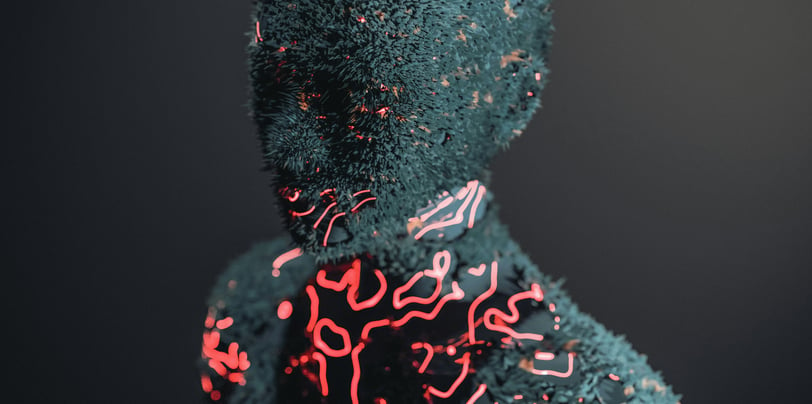The Freudian Psychoanalytic Approach to Understand Human Behavior
Sigmund Freud, the father of psychoanalysis, offered an innovative theory that explores the depths of the unconscious mind. This article elaborates the main principles of Freudian psychoanalytic theory: the structure of the psyche, including id, ego, superego; the psychosexual stages of development; and the mechanisms of defense. Freud's theory suggests unconscious desires and conflicts lay the foundation for personality and behavior.
MRINALINI VERMALIFE
Mrinalini Verma
7/19/20243 min read


The Freudian Psychoanalytic Approach to Understand Human Behavior
Introduction
Have you ever experienced a sudden, unexplainable urge to do something you know isn't quite logical? Or perhaps you've been perplexed by a recurring dream that seems full of symbolism but leaves you feeling confused. According to Sigmund Freud, these experiences may originate from a hidden part of your mind: the unconscious. This article delves into Freud's revolutionary theories and how they can shed light on these and other perplexing aspects of our thoughts and behaviors. Learn how Freud thought that unconscious desires and conflicts form a personality and lead to particular actions.
The Structure of the Mind
To understand human behavior, Freud proposed a model of the mind consisting of three interacting parts:
The Id: It is the mind's primitive core, craves instant gratification and operates on the 'pleasure principle'. It's like a demanding child, driven by basic needs and desires, such as hunger, thirst, and sexual urges.
The Ego: The rational part of the mind that operates on the reality principle.Think of the Ego as the mediator in our internal world. It tries to keep the peace between the Id’s wild demands for instant gratification and the harsh realities of the outside world. The ego uses the 'reality principle,' a kind of compromise strategy, to find ways to satisfy the id's basic needs in acceptable ways.
The Superego: It serves as an internal moral guide, embodying our conscience and societal norms. It evaluates our thoughts and behaviors, frequently causing feelings of guilt or shame when we go against our personal moral standards.
The Psychosexual Stages
Freud's theory of psychosexual development suggests that our personality and behavior are influenced by our experiences during five stages of development.
Oral Stage (0-1 year), the infant finds pleasure in the mouth, and the id's demands revolve around feeding and sucking.
Anal Stage (1-3 years), The libido focus shifts to the anus (toilet training), and the ego begins to develop as the child learns to control bowel movements.
Phallic Stage (3-6 years) sees the child's attention turning to the genitals, Pleasure is often associated with the genitals. The Oedipus and Electra complexes emerge, which involve unconscious desires for the parent of the opposite sex and feelings of rivalry with the parent of the same sex.
Latency Stage (6-12 years), the child's sexual energy is redirected towards social and cognitive development. Focus on forming friendships with same-sex.
Genital Stage (12+ years), the individual's sexual energy is focused on forming romantic relationships and achieving genital satisfaction.
The Defense Mechanisms
The unconscious conflicts between the id, ego, and superego can sometimes lead to feelings of anxiety. To cope with these conflicts, the ego utilizes a variety of defense mechanisms:
Repression: Pushing unacceptable thoughts and desires into the unconscious.
Denial: Denying or ignoring a painful reality
Projection: Assigning your own unwanted thoughts or feelings to others.
Rationalization: Forming false but justifiable explanations for unacceptable behavior.
The Unconscious Mind
Sigmund Freud proposed that repressed desires and memories can impact our behavior, even if we are not aware of them. Dream analysis, a method developed by Freud, can offer insight into the unconscious mind.
Criticism and Persistent Impact
Though Freud's theory has been criticized for the grounds of gender bias and inefficient scientific data, its contribution to psychology is to be remembered. Freud's pursuit toward the unconscious has deeply impacted our understanding of human behavior, highlighting the fact that the mind is such a complex affair.
Conclusion
We may learn more about the Freudian psychoanalytic approach and have a better understanding of ourselves and other people. Begin the process of discovering the latent factors that mold our personalities and behaviors. Think back on your personal encounters and how Freud's theories could relate to you.
Links
GurM Business Pvt. Ltd. empowers entrepreneurs, professionals, and businesses with comprehensive sustainable growth and innovation solutions. Through our platform, InvestBegin.com, we offer strategic business insights, operational support, market research, data analytics, and professional networking opportunities. Our mission is to provide the tools and knowledge needed for success. Join us to access unparalleled resources and drive your business forward.
© 2024. GurM Business Pvt. Ltd. All rights reserved.
GSTIN: 01AALCG3285D2ZV

